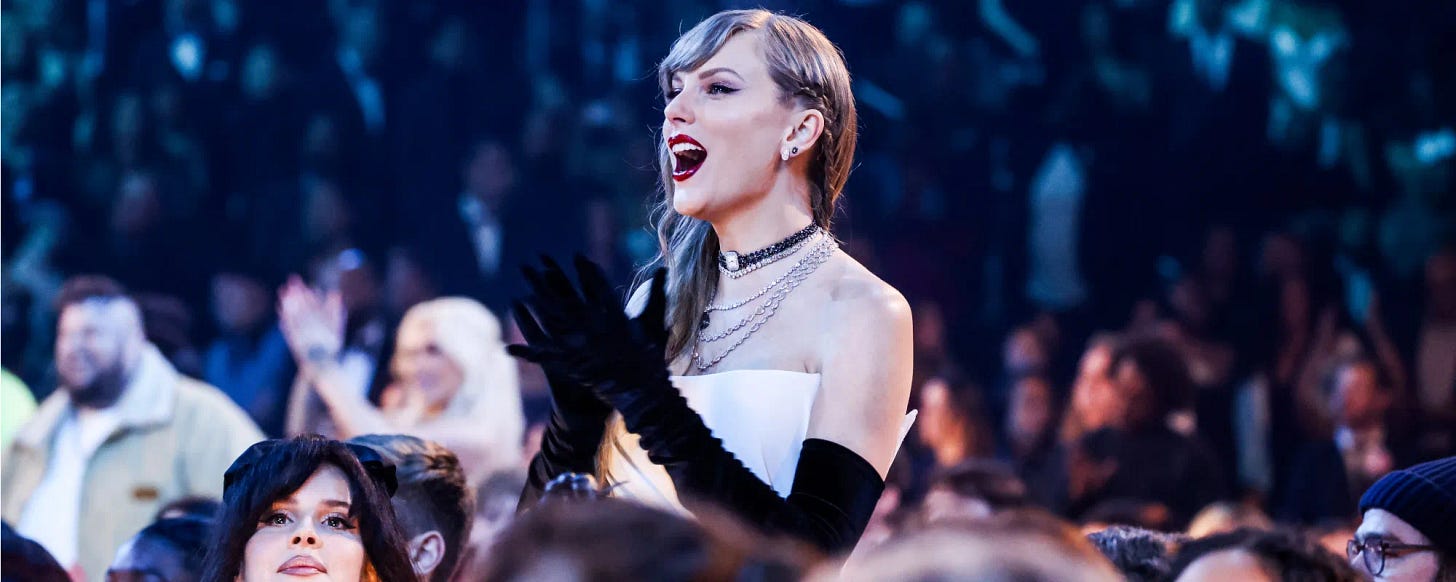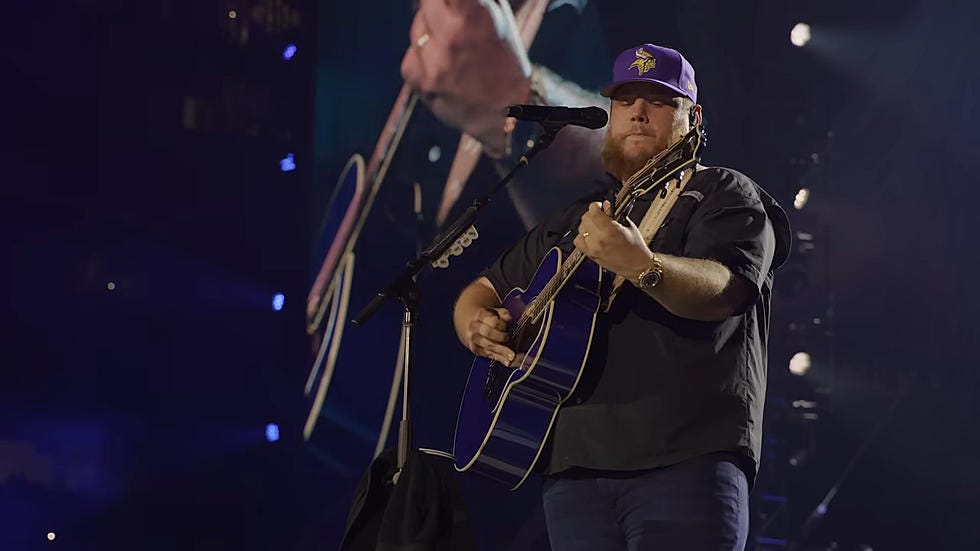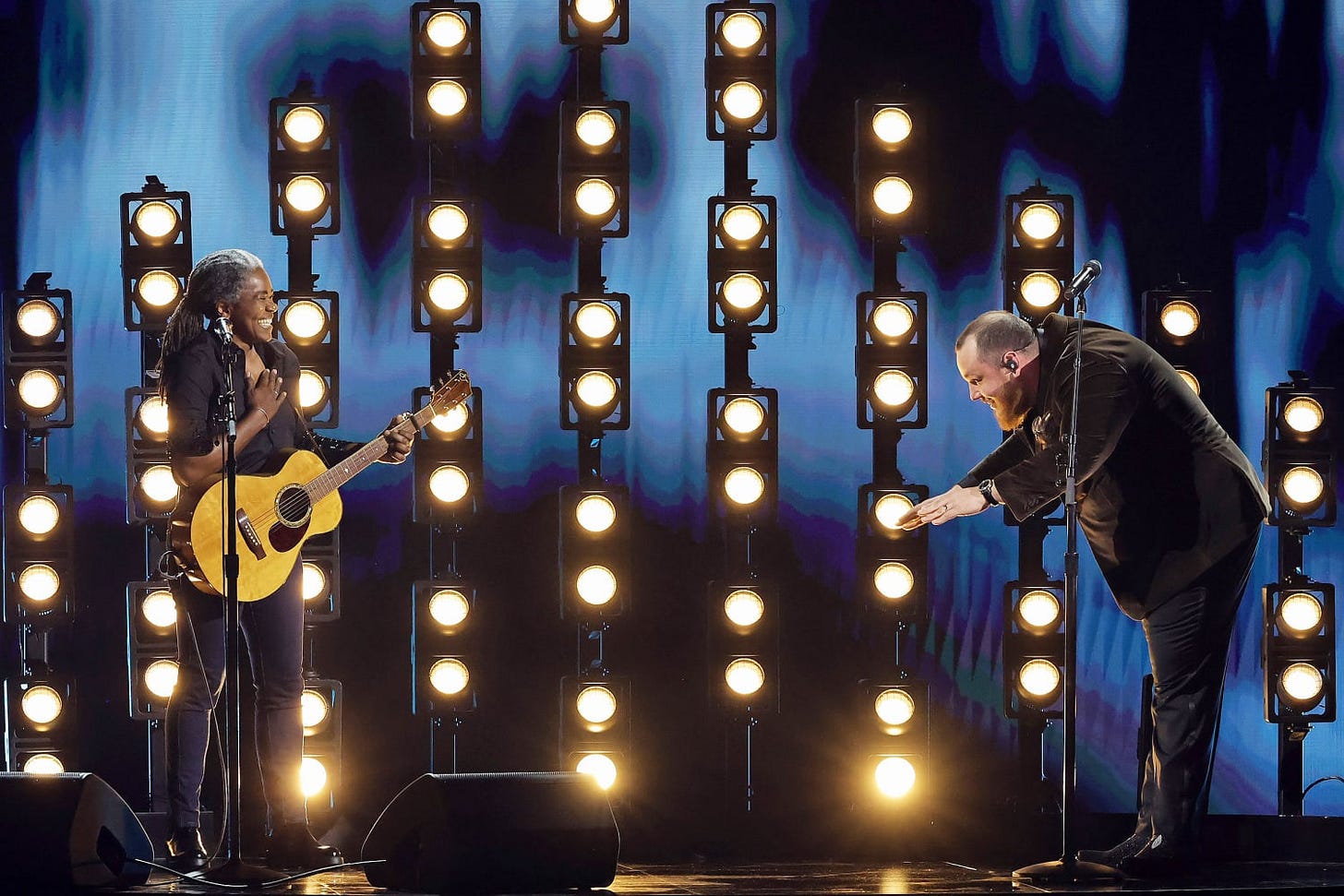Fast Car
The success of Luke Combs's 2023 cover of the Tracy Chapman 1988 classic says something positive about the state of American culture
Happy Sunday -
I recently watched Tracy Chapman and Luke Combs perform Fast Car together at the Grammys. I am a few weeks late in finding this musical gem but it has had a lasting impact on me. I rewatched it 25+ times and read all I could about Chapman, Combs, the song, and cultural reaction to the performance.
My lasting takeaway is that both their Grammys performance, and importantly the success Combs has had with his cover version in the Country music world, say something positive about the mindset and priorities of many Americans today. Combs’s successful rendition makes me optimistic about the underlying attitudes of American citizens at large, even those with different political views. Our core priorities as people are more aligned than our differences suggest. It is all too easy to point to our differences—gender, race, sexuality—and lament the decay of unity. Through our collective response to music (& art, creativity generally) we find a stronger case for optimism.
Chapman—a 59-year-old American singer-songwriter who originally wrote Fast Car in 1988— and Combs—a 34-year-old country music star who released the cover as part of his March 2023 album—have each experienced creative and commercial success with the song.
Chapman won a Grammy for the original in 1988, has earned millions in royalties since (including a reported $500,000 alone on Combs’s version), and has an eternal place enshrined at the intersection of music and multi-generational culture. The song is a classic.
And since his cover release in March, Combs has seen his version remain a top 10 global hit for the better part of a year.
Together on stage at the Grammys, they delivered a sublime performance full of chill-inducing moments:
Chapman’s full smile when Combs walks on stage to join her
Chapman’s full smile at the beginning of the song as the crowd roars (she must know how special of a place this song has in our collective social heart)
The welcoming gratitude with which Chapman turns to Combs and smiles ahead of his first solo part
Combs’ full-bodied, eyes-closed singing (he has stated publicly how much the song means to him, reminding him of spending time with his Dad, driving around in his truck as a kid)
the frequency with which Chapman and Combs turn to one another, make eye contact and smile (clearly a special moment for them both)
the abundant energy in the song, and the crowd, when they sing together
including Taylor Swift standing and singing along from the top of her lungs
their seamless passing of lyrics to one another toward the end of the song
Combs’s turn-and-bow toward Chapman at the song’s close, presumably signaling a heartfelt thank you
Chapman, in response to Combs’s bow, smiles graciously and puts her hand on her heart
Creatively, the performance is dazzling. The gracious human connection on display—a mild-mannered 60-year-old woman from our parents’s generation warmly sharing the stage, and her creative baby, with a full-bodied (literally and figuratively) young country star of today—is heartwarming and soul-filling. Enough so to warrant cursing at the YouTube autoplay functionality for moving too quickly onto the next thing.
Culturally? Combs and Chapman’s performance, on the heels of Combs’ outstanding commercial success with his Fast Car rendition throughout 2023, shine a light, however faint, on inherent unity in our culture.
How?
Sure, the sharing of the Grammys global stage by an older, queer black woman and a younger, straight white male is a symbol of cultural progress. This is of course wonderful to see, and within the snapshot of the moment, makes it all the more beautiful of a performance. But diversity atop a global stage isn’t anything particularly new or noteworthy. Stages are, by definition, elite and thus not representative of the whole. Stages (especially ritzy LA music-industry stages) showcase the best of anything, including our liberal values. Suggesting Chapman and Combs onstage is a sign of American cultural unity and progress is to suggest that an iceberg on the horizon is not dangerous to a ship. It is the mass below the visible surface that can cause the most damage.
Sure, Chapman’s financial upside in Combs’ Fast Car success ($500K+ in royalties in the past year) reminds us that members of less powerful social groups (queer, Black, woman) can profit alongside their more powerful peers (straight, White, man) in our modern economic system. I’m reticent to seriously consider this point, even as I type it because Chapman’s economic success is less attributed to a just economic and social system and more to well-established and protected music royalties law. As a woman of (presumably) economic means via her own success and stardom, she likely has a well-paid lawyer ensuring she’s earning her fair cut of every Combs song play across America today. Her passive, later-in-life income from Combs's success, while awesome to see, doesn't offer much substantive commentary about the state of American culture today.
Neither the Grammy’s performance nor Combs and Chapman’s shared economic success say anything noteworthy about culture today.
But I think the success of Combs’ cover version does.
Combs’ cover has been a dynamite success since its release in March 2023:
it won the 2023 Song of the Year at the Country Music Associaton
it reached the #1 spot in Pop US Hits
it reached the #1 spot in Country Airplay
including the longest Pop cover ever in the Country #1 spot
What is of particular importance and inspiration is just how well the song has done within the Country genre, a genre whose audience typically holds righter-wing political views, views often incongruent with the social advancement of queer or minority groups in the United States.
Chapman is an African-American woman who eschews the spotlight of fame. Originally from Cleveland, she has never married, no children, and is (reportedly, unconfirmed by her) queer. While she has never spoken publicly about her sexuality, her original Fast Car became a “lesbian anthem” in the 80s and 90s largely due to fan speculation about her sexuality and the lack of gender pronouns in the song. Chapman, and the song, are far from the cultural norm of the Country genre.
Combs, meanwhile, is an affable, seemingly-comfortable-in-the-spotlight white man from Charlotte who appears straight as an arrow (he is married to a woman). He looks every bit the role of a country singer—white, scruffy, and the relaxed shirt-jeans-boots combo of a beer commercial. If 100 of us ran into Combs at a gas station, 100 of us would say “That guy is country.”
Comb’s love for Chapman’s original song quickly evaporates any daylight between their visible differences: he speaks openly to his millions of fans about how much Chapman’s Fast Car means to him. It reminds Combs of his youth (as early as 5 years old) spending time with his dad in their 1988 Ford F-150. Fast Car was one of the first songs Combs remembers listening to with his dad, and it “stuck with me my whole life”.
Far beyond Chapman and Combs, wherever we find fandom for Fast Car in culture—Reddit forums, lyric annotation sites, social media posts, etc— we find human beings everywhere feeling drawn to, and seen by, the song’s universally approachable life themes.
On striving:
Maybe together we can get somewhere
Any place is better
Starting from zero, got nothing to lose
Maybe we'll make something
Me, myself, I got nothing to prove
On working hard:
I got a plan to get us out of here
I been working at the convenience store
Managed to save just a little bit of money
Won't have to drive too far
Just 'cross the border and into the city
You and I can both get jobs
And finally see what it means to be living
On family and sacrifice:
See, my old man's got a problem
He lives with the bottle, that's the way it is
He says his body's too old for working
His body's too young to look like his
My mama went off and left him
She wanted more from life than he could give
I said, somebody's got to take care of him
So I quit school and that's what I did
On relationships:
You got a fast car
I got a job that pays all our bills
You stay out drinking late at the bar
See more of your friends than you do of your kids
I'd always hoped for better
Thought maybe together you and me would find it
I got no plans, I ain't going nowhere
So take your fast car and keep on driving
On belonging:
So I remember we were driving, driving in your car
Speed so fast, I felt like I was drunk
City lights lay out before us
And your arm felt nice wrapped 'round my shoulder
And I-I, had a feeling that I belonged
I-I had a feeling I could be someone, be someone, be someone
The song’s themes transcend race. They transcend gender. They transcend sexuality. They are universal to the shared human experience.
Through the lyrics, Combs and Chapman connect themselves, collapsing the delta between their gender, race, and sexuality gaps. Sure, these gaps exist, but in comparison to their shared passion for the song and its meaning, they are dwarves next to a giant. The song speaks deeply to Combs. The song speaks deeply to Chapman. In the passionate throes of the song, their differences cease to matter.
And, based on the popularity of Combs’s rendition within his core country fanbase, the song speaks deeply to Country fans too, as if his righter-leaning fans agree with the “who cares, the song speaks to me” sentiment.
If Combs’ fans did care that Chapman was black and/or queer, we would almost certainly not see the chart-topping numbers, sold-out concert venues, and mesmerized fans singing along by the millions. We might instead see something similar to a Bud Light boycott.
Perhaps there are a few Combs fans who are off-put by his rendition of a song originally made by a black and queer woman. Maybe they don't go to his concerts anymore. Maybe they listen less often or not at all. Edge cases surely exist in the face of any positive trend. Their loss.
But the data and cultural reaction suggest most Combs fans, regardless of political views, love the song. And they love the song for what it is, how it speaks to them, and how it makes them feel.
Perhaps some Combs fans aren’t even aware of the connection to Chapman’s original song, though the chart-topping popularity and national media coverage make this less and less likely. If they do know Chapman, maybe they don’t know that she’s black or queer.
In any case, that’s precisely the point. The majority of American music fans, even the righter-leaning Country fans, don’t really seem to care. Gay, straight, white, black, man, woman: it’s frivolous detail beneath the important goal of experiencing powerful music. Combs’ fans, like most of us, just want good music that makes them feel something. Music that speaks to them in a meaningful and personal way. Fast Car seems to do that.
In moments of a sublime emotional experience, when millions of us are simultaneously listening to Fast Car on the radio going about our day or watching Combs and Chapman share the stage at night, most of us cease to see or care about the divisive (literally) categorical attributes of gender, race, and sexuality. In these moments, we want the same thing: music that brings us together, music that makes us feel. In these moments, we’re simply all fellow Americans whose life experiences intersect for a moment, a moment during which we feel (verb) together.
Combs’ successful rendition of Chapman’s Fast Car reminds us just how many of us—regardless of our positions on the political spectrum—want the same things, and don’t much care about the rest.
And that is something to feel good about.







Ah man - had not seen that performance. Just watched it three times back to back. Beautiful.